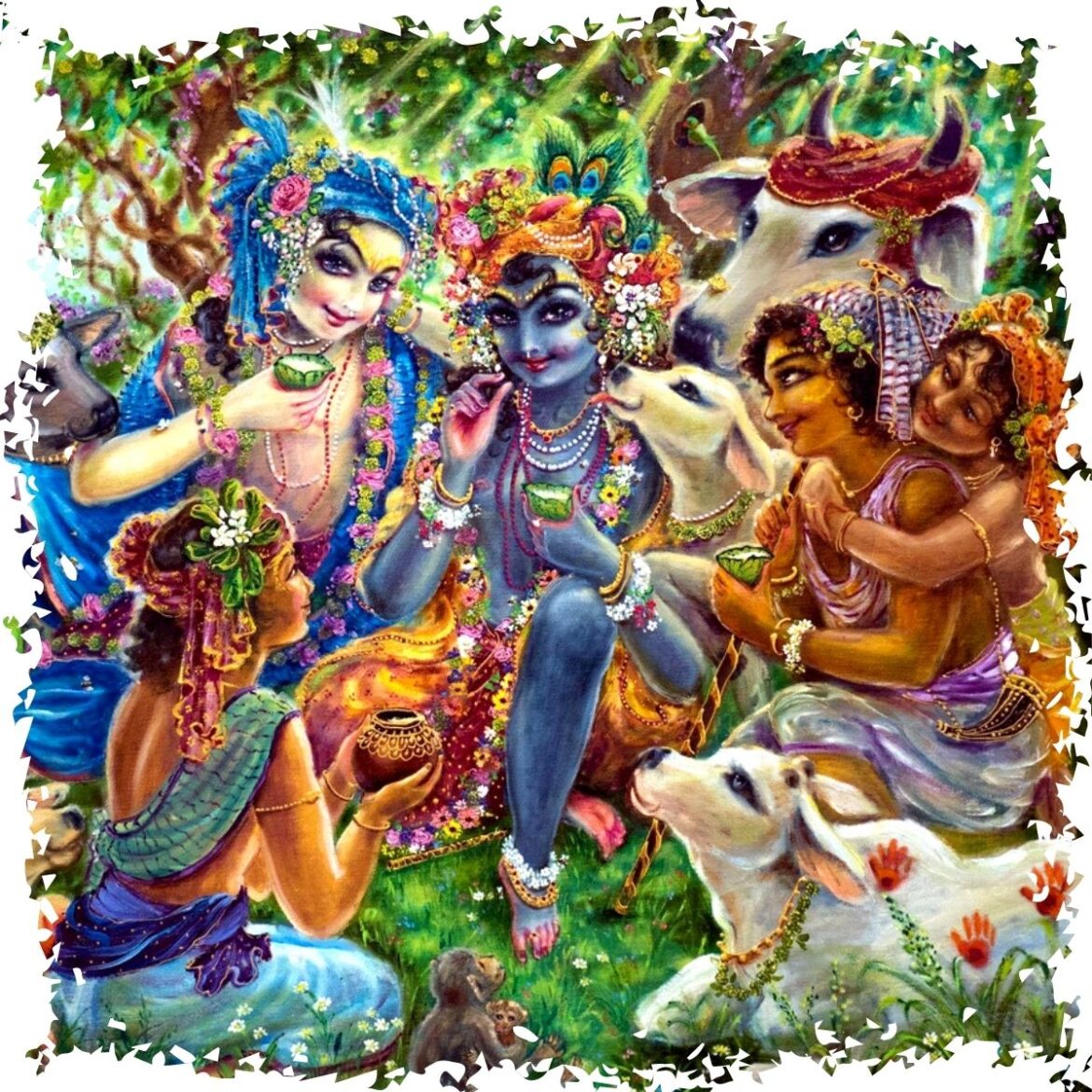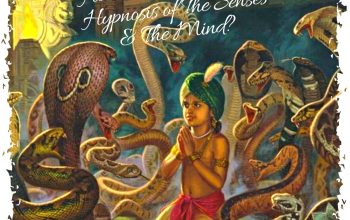Puṣṭa Kṛṣṇa: Next question, Śrīla Prabhupāda. “Do you envision a different role for the Vedic culture in the Western countries, where the influence of other great religions has been felt for centuries?”
Śrīla Prabhupāda: No. There is no “different role.” God is one. God cannot be two. As Kṛṣṇa states in the Bhagavad-gītā [7.7], mattaḥ parataraṁ nānyat kiñcid asti dhanañjaya: “There is no authority superior to Me.” That is God. Now people have to understand that Kṛṣṇa is God. There is no “different role” for the Vedic culture. The role is the same worldwide. Five thousand years ago, Kṛṣṇa said, “I am the supreme authority. There is no authority superior to Me.” He is still so. Therefore we are simply attempting to introduce Kṛṣṇa.
Previously nobody attempted to introduce the supreme authority, Kṛṣṇa, all over the world. We are just trying to introduce Kṛṣṇa, following the orders of Śrī Caitanya Mahāprabhu, who appeared five hundred years ago. He is Kṛṣṇa, and He wanted this Kṛṣṇa consciousness to be spread all over the world:
pṛthivīte āche yata nagarādi-grāma
sarvatra pracāra haibe mora nāma
“In every town and village throughout the world,” said Lord Caitanya, “the chanting of My holy name will be heard.” Kṛṣṇa is not just for India. He is for everyone, because He is God. In Bhagavad-gītā He affirms, ahaṁ bīja-pradaḥ pitā: “I am the seed-giving father of all living entities” – not just the living entities in the human society, but also all other living entities, like the aquatics, the insects, the plants, the birds, and the beasts.
Everything is there in the Vedic culture, but this culture of Kṛṣṇa consciousness, which is summarized in Bhagavad-gītā As It Is, had not been preached properly. Everyone had interpreted Bhagavad-gītā in his own way, to satisfy his own whims. We are just trying for the first time to present Bhagavad-gītā as it is, and it is becoming effective. So this is not a “different role” for the Vedic culture. It is the actual role. Nobody had tried for it; therefore Kṛṣṇa had been unknown in the Western countries. But even though we have been attempting to introduce Him for only a few years, still, because it is reality, Kṛṣṇa consciousness is being accepted. So it is not a new role for the Vedic culture. The role is already there – to preach Kṛṣṇa consciousness.
That is Caitanya Mahāprabhu’s vision. He says especially to people born in India,
bhārata-bhūmite manuṣya-janma haila yāra
janma sārthaka kari’ kara para-upakāra
“Anyone who has taken his birth as a human being in India, Bhārata-varṣa, should make his life successful and work for the upliftment of the whole world.” Indians are meant for this business – for the upliftment of the whole world – because all over the world people are unaware of Kṛṣṇa. So anyone who is born in India should attempt to broadcast the message of Bhagavad-gītā and Kṛṣṇa. That is the order of Caitanya Mahāprabhu.
This is not a new role for the Vedic culture. The role is already there. Five hundred years ago, Caitanya Mahāprabhu spoke of it. But all the various swamis and yogis who came here – they never introduced Kṛṣṇa as the Supreme Personality of Godhead. Now it is being done, and people are accepting, naturally. This is the Kṛṣṇa consciousness movement.
So if everyone joins – either Indian or non-Indian – in this movement, there will be one religion and there will be peace. Peace will prevail. This is the only
way.bhoktāraṁ yajña-tapasāṁ
sarva-loka-maheśvaram
suhṛdaṁ sarva-bhūtānāṁ
jñātvā māṁ śāntim ṛcchati
“A person in full consciousness of Me, knowing Me to be the ultimate beneficiary of all sacrifices and austerities, the Supreme Lord of all planets and demigods, and the benefactor and well-wisher of all living entities, attains peace from the pangs of material miseries.”
This is the way to attain śānti, peace. Understand Kṛṣṇa – that He is the supreme enjoyer, the supreme proprietor, and the supreme friend of everyone. “Accept Kṛṣṇa as your friend. You’ll be happy.” This is the message of Kṛṣṇa consciousness.
Episode 270 – Peace & Real Life Properly Introduced
(Civilization and Transcendence, Chapter 13)
Also featured on Akincana.net & Dandavats.com



